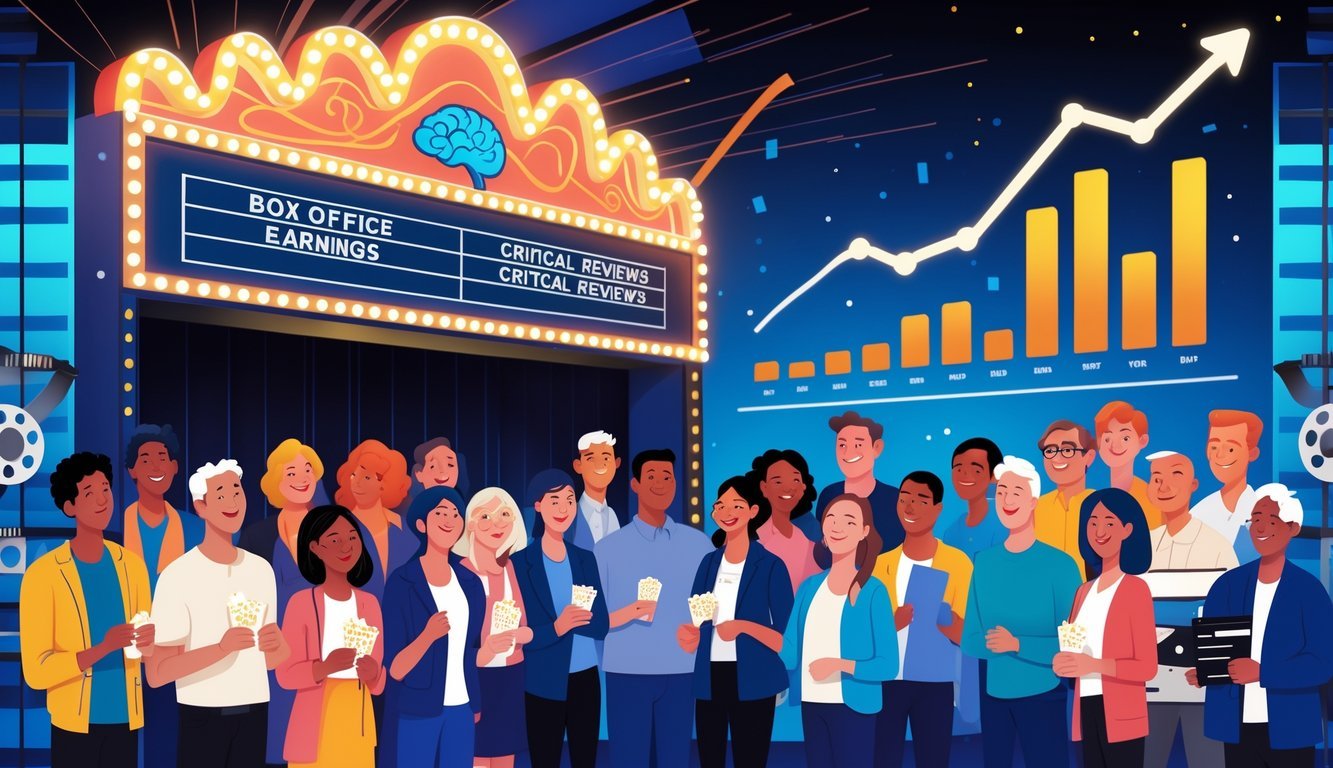PsychNewsDaily Publishers
100 Summit Drive
Burlington, MA, 01803
Telephone: (320) 349-2484
PsychNewsDaily Publishers
100 Summit Drive
Burlington, MA, 01803
Telephone: (320) 349-2484
Movies focusing on mental illness achieve higher box office revenue, receive better critical acclaim, and win more awards, highlighting the importance of authentic representation in cinema.

Movies about mental illness are doing better than many folks realize.
A recent study shows these films often earn more money, get better reviews, and win more awards than other types of movies. That kind of success tells us viewers really want authentic, thoughtful stories about mental health.
These films don’t just do well at the box office.
They connect with audiences by offering honest portrayals of mental health struggles.
Maybe that’s why critics respond so positively and why these movies rack up more recognition.
You might not expect mental health stories to have such a strong place in pop culture.
But seeing how these films succeed really highlights the impact of better representation on screen.

You might notice movies about mental illness often earn more money and get better reviews than other films.
They seem to connect with audiences in ways that boost both ticket sales and critical approval.
Movies about mental illnesses like schizophrenia or depression tend to make more money at the box office than average films.
They attract a wider audience interested in complex, human stories.
Take Joker, for example—it became a massive financial success, pulling in over a billion dollars worldwide.
Online platforms like Yahoo drive buzz and help spread interest fast.
Financial success like this shows stories about mental illness can be both powerful and popular.
These movies don’t just make money—they also win awards and get strong reviews.
Critics often give higher scores to films about mental illness, especially when the stories feel honest and sensitive.
Awards, like the Oscars, often go to movies that explore mental health issues well.
This kind of recognition boosts their reputation and gets more people interested.
Positive reviews matter because they show how these stories challenge stigma and capture real emotions.
Audiences seem to notice and respect that.

How movies show mental illness shapes what you think and feel about these conditions.
The way characters with mental health issues appear on screen can fight stigma, build empathy, or—sometimes—just reinforce the wrong ideas.
Your views and feelings shift based on what you see.
When movies show mental health issues honestly, they can actually reduce stigma.
Fewer people end up judging or treating others unfairly because of mental illness.
Instead of repeating tired stereotypes, films can reveal diverse experiences and the real struggles people face.
You might notice characters with mental illness are more than just their diagnosis.
They’ve got hopes, flaws, and strengths.
That helps you see them as real people, not just labels.
When stories respect consent and avoid showing harmful behavior without context, they paint a more accurate and respectful image.
The way movies portray mental illness affects how much empathy you feel.
Empathy means understanding and sharing the feelings of others.
Good portrayals give you a window into what someone with a mental health condition might experience.
Movies that focus on the emotional side help you connect with characters on a personal level.
You might feel more willing to support mental health causes or just be kinder to people who struggle.
But if a movie leans on stereotypes or spreads bad info, it can block empathy and lead to more fear or misunderstanding.
How movies show mental health can shape your thoughts and choices.
Films about mental illness often earn more money and get better reviews because they grab your attention and make you think.
They really have the power to reach a lot of people.
The right representation can encourage viewers to talk openly about mental health or seek help when needed.
It can even shift social attitudes and reduce stigma in communities.
But if movies spread myths or negative images, they can increase stigma and cause harm.
| Impact of Good Representation | Impact of Poor Representation |
|---|---|
| Reduces stigma | Reinforces stereotypes |
| Builds empathy | Spurs fear and misunderstanding |
| Promotes openness and support | Creates misinformation |

Movies about mental illness shape how people think about mental health, how they perform at the box office, and how critics respond.
These films can win awards but also raise some important questions about ethics and accuracy.
You might notice that movies showing mental illness help raise awareness and reduce stigma.
Still, some films use negative stereotypes, which can hurt how people view mental health.
Yeah, films focusing on mental illness often pick up more awards.
Studies show these movies win more Academy Awards compared to others.
Critics usually give higher ratings to movies about mental health.
These films tend to get better reviews than the average movie.
When movies about mental health do well at the box office, studios feel more confident making similar films.
Successful movies show there’s an audience for these stories.
It’s worth paying attention to whether movies treat mental illness with respect.
Some films insult or belittle characters with mental health issues, which can be harmful.
Most movies don’t really capture what it’s like to live with mental illness. Some films get it right, but a lot lean on stereotypes or blow certain behaviors way out of proportion.